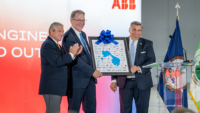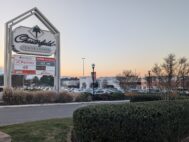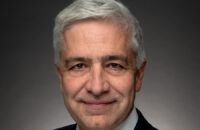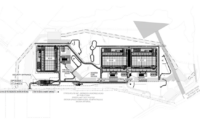Data centers, manufacturing drive growth in Central Virginia
Central Virginia's 2025 growth driven by major data center projects and manufacturing investments, including Google, AstraZeneca, and Eli Lilly expansions.
Dominion $1.47B gas plant proposal back on track in Chesterfield
Virginia SCC again approves Dominion’s $1.47B Chesterfield gas plant as DEQ air permit faces appeal from environmental groups.
San Diego firm acquires Chesterfield-based W.O. Grubb
Halo Partners announced Wednesday that it has acquired Chesterfield County-based rigging company W.O. Grubb Crane Rental.
Solstice Advanced Materials to invest $220M in Chesterfield expansion
Solstice Advanced Materials plans to invest $220 million to expand production at its manufacturing facility in Chesterfield County.
Dominion gas plant in Chesterfield on hold, while SCC considers petition
Dominion Energy's proposed Chesterfield County natural gas plant is now on hold, as the Virginia State Corporation Commission is reconsidering its final order approving the project.
Chesterfield Towne Center sells to New York, Swiss companies
Chesterfield Towne Center, the largest enclosed mall in the Richmond area, was sold on Dec. 12 to JRE Partners and Anastacia AG for an undisclosed amount.
Chesterfield County administrator to retire in 2026
Chesterfield County Administrator Joseph P. Casey will retire July 1, 2026, after a decade leading major economic growth projects.
Chesterfield County lab settles with DOJ in alleged kickback scheme
Next Bio-Research Services has agreed to pay at least $758,000 to settle allegations that it paid illegal kickbacks.
Virginia SCC approves Dominion gas plant in Chesterfield
Dominion Energy's $1.47 billion natural gas power plant in Chesterfield County received the Virginia State Corporation Commission's approval Tuesday, despite opposition from neighbors and environmental groups.
RVA757 Connects strategy calls for more digital infrastructure along corridor
RVA757 Connects unveiled its 2035 Global Internet Hub Vision Plan to position the I-64 corridor as a hub for digital infrastructure.
New documents reveal scope of Google’s Chesterfield data center campus
Google plans to build an 855,846-square-foot data center campus on a roughly 307-acre property in Chesterfield County.
Virginia health board backs VCU Health, Bon Secours projects in Chesterfield
Virginia health staff recommend approval for VCU Health and Bon Secours projects in Chesterfield, but recommend denying HCA proposal.





















